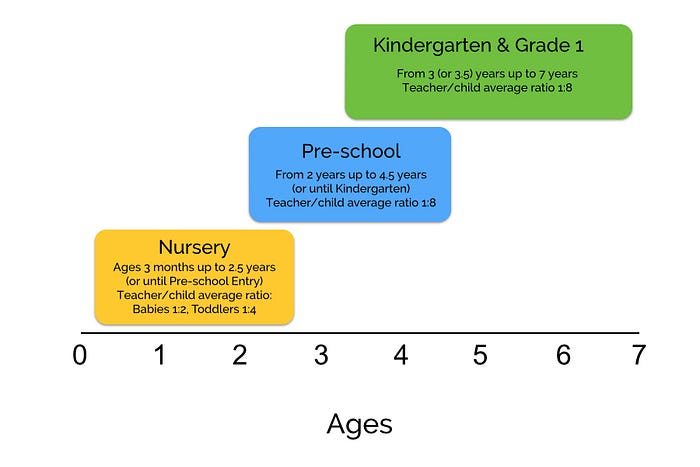What Age is Preschool? A Comprehensive Guide for Parents
Choosing the right time to enroll your child in preschool is an important decision for any parent. As your little one grows and develops, their educational journey begins to take shape. But what age is preschool exactly? In this article, we’ll explore the ideal age range for preschool enrollment, factors to consider, and the benefits of early education. By understanding these key aspects, you’ll be better equipped to make an informed decision about your child’s preschool journey.

Defining Preschool
Preschool, often referred to as pre-kindergarten or nursery school, is an educational program designed for children before they enter formal schooling. It serves as an important transitional phase between home and elementary school, providing a nurturing environment where young children can grow academically, socially, and emotionally. Preschool typically focuses on play-based learning, building basic skills, and fostering independence.
Ideal Age Range for Preschool
While there is some variation based on regional practices and individual programs, the general age range for preschool enrollment is typically between 3 to 5 years old. Most preschools accept children as early as 2 years old, depending on their developmental readiness. It’s essential to remember that every child is unique, so their readiness for preschool may vary.
When considering the ideal age for preschool, it’s important to evaluate your child’s developmental milestones. Some key indicators of readiness include:
a) Social and Emotional Development: Preschool helps children develop vital social skills, so they should be ready to interact with peers and follow simple instructions.
b) Independence and Self-Care Skills: Preschool encourages independence, such as using the bathroom independently, dressing themselves, and following daily routines.
c) Language and Communication Skills: Basic language and communication skills, including the ability to express needs and understand simple instructions, are crucial for preschool success.
Benefits of Early Education
Early enrollment in preschool offers numerous benefits that can positively impact your child’s development. These advantages include:
a) Cognitive Development: Preschool provides opportunities for children to develop essential cognitive skills, such as problem-solving, critical thinking, and language development. They engage in various activities that stimulate their curiosity and foster a love for learning.
b) Socialization: Interacting with peers and teachers in a structured setting helps children develop important social skills like sharing, cooperation, and conflict resolution. These skills lay the foundation for successful relationships and future academic success.
c) Emotional Growth: Preschool offers a supportive environment for emotional growth, where children learn to manage their emotions, develop empathy, and express themselves effectively. They also learn to adapt to routines and transitions, preparing them for future school experiences.
d) Readiness for Kindergarten: By attending preschool, children gain a head start in acquiring foundational skills necessary for a smooth transition into kindergarten. They develop pre-reading and pre-writing skills, number awareness, and other fundamental concepts that prepare them academically.
Conclusion
Preschool is an important milestone in a child’s educational journey, fostering growth in various aspects of their development. While the ideal age range for preschool enrollment is typically between 3 to 5 years old, it’s crucial to consider your child’s individual readiness and developmental milestones.
By providing an early educational experience, preschool equips children with valuable skills, setting the stage for future academic success. Remember to visit local preschools, speak with educators, and assess your child’s needs to make an informed decision. Embrace the opportunity to give your child a strong foundation for lifelong learning and growth.
